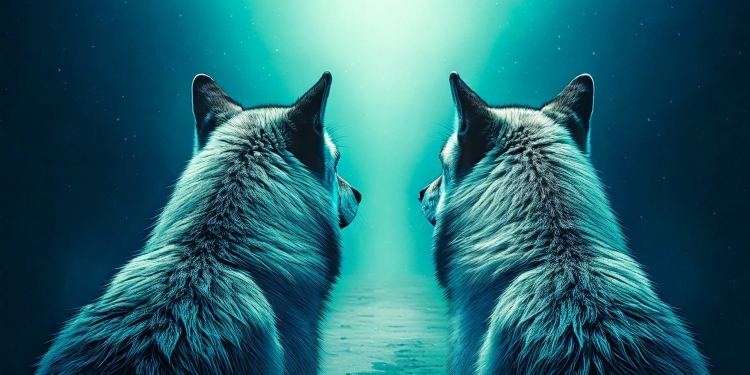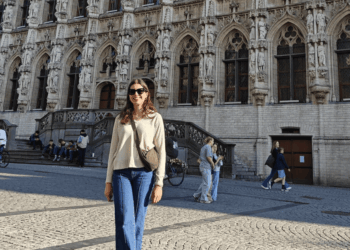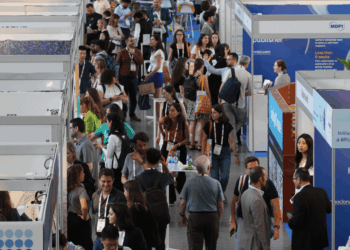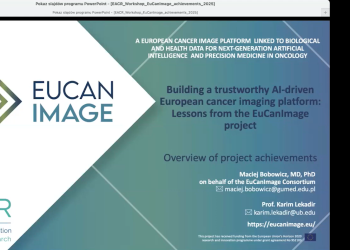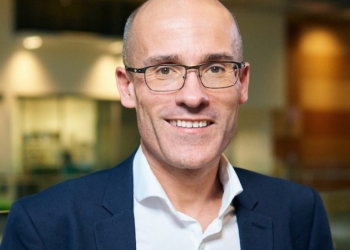There are two wolves inside me: one driven by impact, determined to cure cancer, and another driven by curiosity, wanting to understand how things work. After three years as a full-time researcher, I’ve noticed the paradox in how I approach science: having high expectations of clinical impact actually hinders my curiosity and scientific progress.
The cycle goes like this: I embark on a project with grand ambitions (usually involving curing cancer). I immerse myself in the specific problem and make substantial progress. Then I realise it’s not going to have the impact I had hoped for. I get discouraged and abandon the project for a new method or a new problem entirely. Rinse and repeat.

My work on intratumor heterogeneity illustrates this. I began hoping to revolutionise treatment response assessment. Currently, treatment response is mostly based on tumour size in the case of solid tumours. What if I could demonstrate that intratumor heterogeneity also matters to assess if a patient is responding to a treatment? Months in, I found myself lost in the intricacies of unsupervised machine learning methods, trying to understand why the algorithms behaved in a certain way, obsessed with tweaking hyperparameters until I was satisfied with my pipeline. But when writing up my results, I started second-guessing everything. How could this possibly cure cancer? I convinced myself that my experiments were minor and not worth a paper. So I moved on, and months of hard work ended up in the dustbin of scientific history.
Interestingly, my most productive and enjoyable moments happen when I’m not thinking about impact at all. Time flies while I’m debugging code or having shower epiphanies about algorithm optimisation. It’s in these moments, driven purely by curiosity, that I find myself most engaged with my research.
To burden every experiment with the weight of curing cancer is exhausting and counterproductive. Not only do I stop enjoying research, but I also become a poorer scientist at times when I should be sharing my work. Am I actually doing science if no one can build on top of my results?
I’m not entirely sure how I ended up with these expectations, so wrongly calibrated. But it’s occurred to me that both society and our academic system might play a small part in this. The current system often feeds into this paradox: grant applications push us to promise revolutionary outcomes, while journals seem to favour flashy results over incremental progress. And when it comes to cancer research, society’s focus on finding “the cure” doesn’t help. As a young cancer researcher, I’ve lost count of how many times I’ve been asked if I’m close to curing cancer, rather than what interests me most about my work.
I’ve come to a conclusion, which I hope to apply in my final year of PhD studies (better late than never): both wolves are necessary, but they need to be fed at different stages. The impact wolf pushes me to identify important questions, driving the overarching goals of my thesis. I can feed him at the beginning of projects to motivate myself to start working on them and while writing grants too. But it’s the curious wolf that guides my daily work.

Importantly, I’m broadening the impact wolf’s diet. In other words, I’m recalibrating my expectations. Developing a method that saves other researchers time is impact. So is identifying a dead end, preventing wasted resources. Not every paper needs to cure cancer to be valuable to the scientific community. In fact, the cure for cancer will likely emerge from a river of tiny discoveries, each a result from curiosity-driven research. Impact often follows understanding, not vice versa.
From now on I’m letting my curiosity lead my daily research while sometimes stepping back to reflect if I’m channeling that curiosity towards impactful outcomes (which are not limited to curing cancer). That’s what I’m aiming for in my final year of PhD studies: embracing the paradox and feeding both wolves at appropriate times.
About the author:
Olivia Prior is a Barcelona-based biomedical engineer working on her final year of PhD studies at the Radiomics Group (Vall d’Hebron Institute of Oncology) led by Dr. Raquel Perez-Lopez. Her research is focused on understanding intratumor heterogeneity captured in medical images such as CT and MRI scans.
About this article
This is one of our shortlisted entries for the 2024 EACR Science Communication Prize themed around our #KeepResearchCurious campaign. Choosing a winner was incredibly difficult and we’re delighted to share our shortlist with you.
The header image of this article was created using AI.


